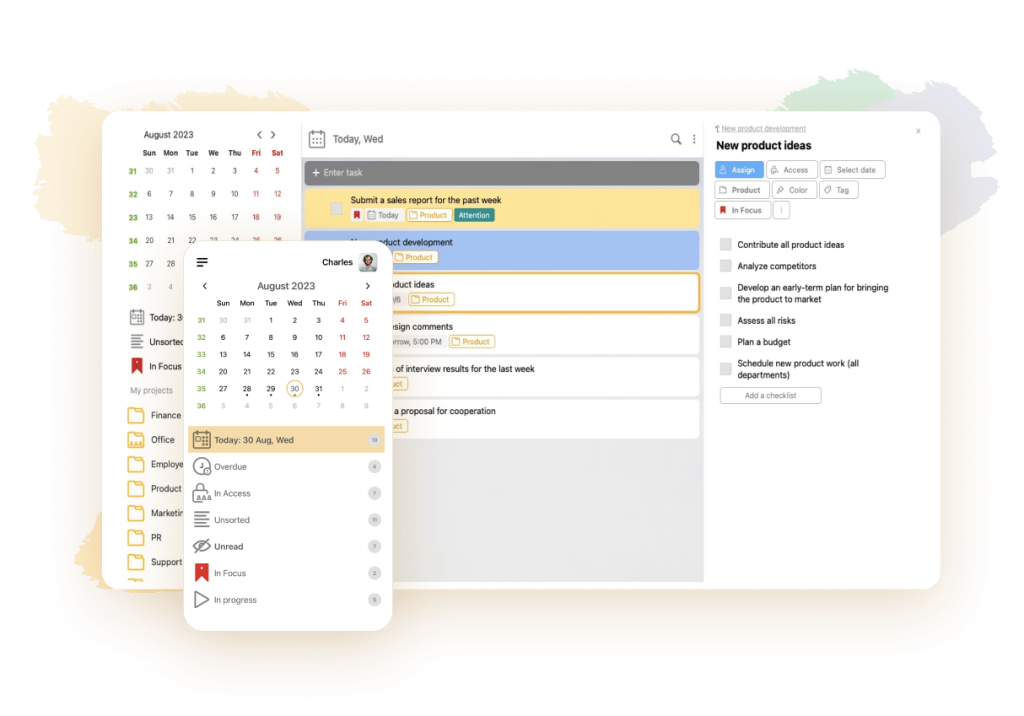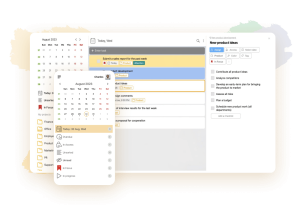What are hard skills

To qualify for an interesting position in a prestigious company, to become a good manager, to build a successful career, it is important to develop “hard and soft skills”. These are certain skills and abilities that help to advance in any professional sphere. These are the ones we list on our resumes when applying for a job. Today, we’re going to dwell more on hard skills. Let’s find out what they are. How do hard skills help you in your work? How can they be developed or improved? What qualifications will be in demand in the foreseeable future?
What it is

The concept of “hard skills” began to be used in the military in the 1960s. This term described the abilities required to work with mechanized devices. A little later, the concept began to be used in business and psychology.
Hard skills or “hard, hard skills” are skills, knowledge, skills in some professional field. They can be acquired over a period of time. And they are required to perform specific tasks on the job. It can be proficiency in programming languages, knowledge of HTML and CSS for developers, or English at a high level of Advanced (C1) for translators, and for engineers the basic skills will be the ability to work with various devices or mechanisms. That is, the component that will remain the same when moving to a new position or job.
We acquire solid skills in a scientific and educational environment, in the process of studying at higher, specialized secondary educational institutions, in online courses or various internships. Some skills are mastered independently, others are adopted from more experienced teachers, educators, specialists. They are different for each area of professional activity.
Mastering professional skills requires mental effort. When mastering them, the left hemisphere of the brain is engaged, memory, attention and logical thinking are developed. Hard skills can be clearly demonstrated, assessed, measured. They are acquired and honed gradually, becoming more complex from level to level.
How hard skills differ from soft skills

Hard skills are qualities, abilities, skills required in a particular profession. And soft skills are skills related to a person’s personal characteristics: communication skills, customer orientation and so on.
The development of hard and soft skills is equally important in any profession, because they are personal qualities. However, for some activities, hard skills are more essential. For example, a pilot must first and foremost be able to fly an airplane, but the ability to communicate with other people is not of primary importance. For a person in a managerial position, for example, hard skills and soft skills are equally important.
Based on the ratio of soft to hard skills, all occupations can be roughly divided into three categories:
- With dominant hard skills. These are related to technology or scientific endeavors. For example, nuclear physicist, bioengineer, chemist. These specialties are valuable for their professional knowledge, so such specialists are primarily evaluated by these criteria. Their sociability, ability to work in a team is of little importance.
- With equal hardskills and softskills. This category includes accountants, financial officers, lawyers, and investigators. They need to be professionally savvy, but also interact successfully with others.
- With prevailing soft skills. They are necessary for politics, business, sales, tourism. Charisma, the ability to persuade and communicate with the audience are much more important to specialists working in these fields than knowledge of technical issues.
The differences between them are summarized in the following table:
| Hard skills | Soft skiils |
|---|---|
| Relate to a particular profession | Needed in all areas of work and life |
| Requires thinking effort, concentration | Related to emotional intelligence |
| Tested by tests, exams | Possible errors in testing |
| Confirmed by documents | Demonstrated in the work |
| Can be mastered in a short time | A long, emotionally taxing process that requires patience |
| Improve with experience | Developed in specific situations |
| Identical for one professional area | They need to be rearranged depending on the environment they are in |
| Base or foundation for future work | The foundation of learning anything new, including hard skills. |
What goes into hard skills: examples

Professional characteristics are easily verified in practical conditions. To assess them, it is enough to show your education document, portfolio or to fulfill a test task from your employer at the time of employment. You must prove that you have the right amount of knowledge. This will be different for each type of activity:
- the developer has to write the code;
- accountant – be able to work with a chart of accounts;
- architect – to know building codes, standards, basics of composition.
Here are a few more examples of Hard skills that are needed by representatives of in-demand professions in today’s market:
Frontend developer
He develops the user interface, i.e. the part that visitors see on the site. His main task is to convert the design project into code so that everything functions properly and looks aesthetically pleasing on the site. He should have technical knowledge of: HTML, CSS, JavaScript, work with Vue, React or Angular frameworks. Work with version control systems.
Business Analyst
This specialist is engaged in the analysis, processing, systematization, analysis of large arrays of information. Forms visual reports based on the studied indicators. His work helps the company’s management to make more accurate and balanced decisions for business development.
His hard skills:
- Analytical skills, experience in working with large arrays of information, ability to identify trends and make strategic decisions;
- Proficiency in digital tools and data processing platforms;
- Marketing analysis skills, ability to evaluate company marketing strategies, perform competitive analysis, measure ROI (return on investment).
Project Manager
The primary tasks of this person include such a task as organizing the company’s work processes. He distributes tasks to subordinates, controls the results obtained, plans time and resources, and creates a favorable environment for employees to work in. He must know who to assign a task to, how it should be accomplished, which team member will handle it more efficiently and quickly. His skills include:
- planning, organizing team activities;
- resource allocation and budget allocation;
- organizing communications with employees and customers;
- business correspondence;
- mastery of the norms of legislation;
- technical knowledge of the industry.
Universal Hard Skills
Among the vast number of professional competencies, there are universal competencies that will suit any professional. These include:
- Knowledge of a foreign language. With the help of this skill you will be able to receive and analyze information from foreign sources, participate in international events, conferences, communicate with colleagues or partners from other countries.
- Computer literacy. This skill includes working with a suite of office programs, processing and searching data on the Internet, high-speed printing, and the ability to work with databases.
- Math. Knowledge in this area is required in many professions. For example, in logistics, marketing or finance.
The ability to create presentations and work in graphic editors can be added to universal hard skills.
Top hard skills in {year}
Business network Linkedin publishes an annual list of competencies that employers want to see in their employees. In {year} the following hard competencies were included:
- Program Development on SCRUM;
- Proficiency in SQL for working with databases;
- Financial Management;
- Knowledge of Python;
- Working in Java;
- Data analytics;
- JavaScript;
- Cloud Computing;
- Operations Management;
- Video/audio content creation;
- Working with CRM systems.
The recent crisis associated with the COVID-19 pandemic has clearly demonstrated that further business development will be associated with digitalization. Because of this, there was a need to master new technologies, to implement software in many areas of activity. Therefore, in the future, the need for specialists with advanced technical knowledge in the field of software, cloud and digital technologies will only increase.
How to improve your hard skills

Hard skills are a kind of stepping stone on the way to a successful career. Their development is not limited to university or professional education. You can study at courses, trainings or get them on your own by studying relevant information.
Here are some working tips for improving hard skills that will be appropriate for any field of endeavor:
- Use specialized courses, conferences, forums for professional development, take part in master classes and workshops. Sign up for internships. If you wish, this way of learning can be combined with your main job or study.
- Take the time to read and study books, webinars related to the profession using trusted and competent information sources.
- Sign up and try working on online exchanges that provide real orders.
- Continuously develop your practical knowledge, bring it to perfection, hone and improve your skills;
- Add new skills to your piggy bank. You could certainly use learning a foreign language or mastering graphic editors.
- Share practical experiences with colleagues.
To qualify for a new high-paying position, to develop your hard skills, you can use the following plan:
- Research the requirements for the job you are interested in.
- Make a list of the knowledge available in the field based on past learning and practical experience.
- Make note of the points that need to be finalized.
- Find the right courses, training materials in your specialty.
- Use new knowledge in a practical setting.
Once acquired, hard skills cannot be lost. They improve from regular use and practice.
How to use the LeaderTask app to improve hard skills

In order to develop technical skills, continuous learning is necessary. However, in real life every person, besides gaining knowledge in some field, has to perform many other tasks, in such cases it is impossible to cope without time management. Daily planning helps to find time for work, study and proper rest, without the threat of being under a pile of unresolved cases.
You simply make a list of your current tasks. You select the most important and the most important among them. You set deadlines for them. You control the process, the quality of execution and mark each achieved result.
You can do it manually, in a regular paper notebook, or use the LeaderTask application, which will always be at hand: in your phone, tablet or work laptop. The program successfully functions on all digital platforms and synchronizes with many popular services.
Using the “Projects” section, you can sort and organize any information by categories. To avoid confusion with the current tasks, label them with appropriate tags. Create hierarchical lists of tasks or use the calendar for planning by setting up a convenient search using the filter system.
The application can be easily customized. Use it to schedule your personal and work tasks, eliminating the hassle. Mark the achieved results to increase motivation. This will make the learning process interesting and productive.
Conclusion
Hard skills help you to perform effectively at the appropriate level, while soft skills are essential to successfully interact with other team members, communicate with coworkers, and resolve conflicts. By paying enough attention to these two facets, you will achieve real success.
To reinforce solid skills make a list of your knowledge and skills that you have acquired through your studies and work. Think about which ones you need to “tighten up”. Take advantage of any learning opportunities: whether it’s specialized courses in your specialty, online training, internships or self-study. This will allow you to remain competitive in the labor market.



